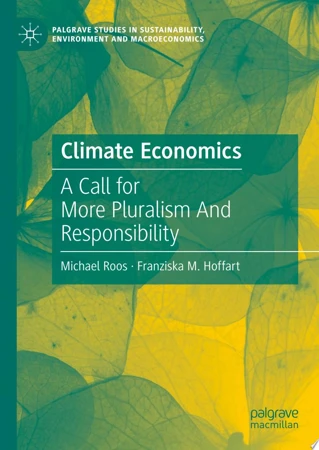Climate Economics – A Call for More Pluralism And Responsibility

Blurb
This book is a philosophical critique of the economics of climate change from both an ethical and philosophy of economics perspective. Mitigating climate change is not so much a scientific problem, but rather a political, social and above all an economic problem. A future without greenhouse gas emissions requires a radical transformation towards a sustainable low-carbon economy and society. How this transformation could be achieved raises numerous economic questions. Many of these questions remain untouched, although economists are equipped with a suitable toolkit and expertise. This book argues that economists have a social responsibility to carry out more research on how global warming could be stopped and that, ultimately, economic analysis of climate change must be a political economic approach that treats the economy as part of a wider social system. This approach will be of interest to policy makers, educators, students and researchers in support of more pluralism in economic research and teaching.Book summary
The book criticizes neoclassical climate economics in the tradition of William Nordhaus. It explains why this kind of thinking is misleading and why neoclassical climate economics asks the wrong questions. The book also explains why there is not enough pluralism in economics and that there are specific responsibilities of economists. One important responsibility is to care about relevant issues. Another responsibility concerns the adequate choices of research methods. The book argues that economists have a responsibility to allow a plurality of different approaches.
Comment from our editors:
The book provides an overview of the neoclassical approach to climate economics. Nobel laureate Nordhaus' fundamental model is explained and widely criticized. It is explained how climate economics could benefit from insights from other schools of thought. The book can therefore be a good basis for term papers/theses that critically examine the prevailing climate econometrics. It is also useful for a discussion of neoclassical climate policy through CO2 pricing.

